


Overview-Map Key


Five-Star Trails: Tucson
Copyright 2014 by Rob Rachowiecki
All rights reserved
Published by Menasha Ridge Press
Distributed by Publishers Group West
Printed in the United States of America
First edition, first printing
Editors: Susan Haynes and Tim W. Jackson
Project editor: Ritchey Halphen
Cover design: Scott McGrew
Text design: Annie Long
Cover and interior photos: Rob Rachowiecki except where noted
Cartography and elevation profiles: Rob Rachowiecki and Scott McGrew
Proofreader: Julie Hall Bosch
Indexer: Ann Cassar / Cassar Technical Services
Frontispiece: Rappel Rock from the upper reaches of the Wilderness of Rock Loop ( see )
Library of Congress Cataloging-in-Publication Data
Rachowiecki, Rob, 1954
Five-star trails, Tucson : your guide to the areas most beautiful hikes / Rob Rachowiecki
pages cm.
Summary: Tucson lies in a saguaro-studded desert basin surrounded by four mountain ranges and bookended by two national parks. In an hour you can drive from an arid canyon in the ArizonaSonora desert to a pine-forested mountain at 9,000 feet. Hiking trails are plentiful and as varied as the terrain. Five-Star Trails: Tucson by Rob Rachowiecki guides hikers to diverse trails suitable for anyone from wheelchair-using naturelovers to those looking for an all-day workout. Sized to fit in a pocket, this guide is convenient to keep in the car or toss into a backpack. Driving directions steer hikers to the nearest trailhead parking areas, including GPS trailhead coordinates to get them to the start of the trail. Each trail has been thoroughly researched and recently hiked and includes detailed descriptions, trail profiles, and maps. At-a-glance categorical ratings, such as scenery, trail condition, difficulty, solitude, and kid-friendliness, let you quickly select a trail that fits your tastes and ability. Other key information such as fees, restrictions for dogs, and advice on when to visit, offers you the best information so you can plan your trip with ease. Provided by publisher .
ISBN 978-0-89732-442-7 (pbk.) ISBN 0-89732-442-0
eISBN 978-0-89732-443-4
1. HikingArizonaTucson RegionGuidebooks. 2. TrailsArizonaTucson RegionGuidebooks. 3. Tucson Region (Ariz.)Guidebooks. I. Title.
GV199.42.A72T8357 2014
917.91'77dc23
2013045417
 MENASHA RIDGE PRESS
MENASHA RIDGE PRESS
An imprint of Keen Communications, LLC
P.O. Box 43673
Birmingham, AL 35243
menasharidgepress.com
Disclaimer
This book is meant only as a guide to select trails in and around Tucson, Arizona, and does not guarantee hiker safety in any wayyou hike at your own risk. Neither Menasha Ridge Press nor Rob Rachowiecki is liable for property loss or damage, personal injury, or death that may result from accessing or hiking the trails described in this guide. Be especially cautious when walking in potentially hazardous terrains with, for example, steep inclines or drop-offs. Do not attempt to explore terrain that may be beyond your abilities. Please read carefully the introduction to this book, as well as safety information from other sources. Familiarize yourself with current weather reports and maps of the area you plan to visit (in addition to the maps provided in this guidebook). Be cognizant of park regulations, and always follow them. While every effort has been made to ensure the accuracy of the information in this guidebook, land and road conditions, phone numbers and websites, and other information are subject to change.
Contents
Dedication
For Audrey Gambach, who shares the trails and trials of life with unflagging optimism, good humor, loving support, and the occasional kick in the pants .
Acknowledgments
Without knowing I was researching a guidebook , many hikers I met provided me with friendly tips and valuable insights. Its remarkable how the whole hiking community looks out for one another on the trails.
Im equally indebted to the volunteers, rangers, and staff of Saguaro National Park, Coronado National Forest, and Catalina State Park, who likewise were a fine source of information. Again, I rarely revealed my authorship, preferring to receive the same kind of support any other hiker would.
Firefighter David Medford at the Lemmon Rock Lookout cheerfully pointed out some of the highlights of Mount Lemmon. Pima County officials researched my questions about trailheads; in particular, I recognize Regina Nassen and Gregoria Tucker for their service.
Ive hiked almost all of these trails more than once, some numerous times. Usually I hike alone, but my daughter Julia joined me on a summit hike of Mount Lemmon, and Audrey Gambach accompanied me at least once on half of these routes. Todd Jones joined us a few times, including on our infamous pair of drowned rats hike. (Yes, it does rain in the desert.) Thanks, guys!
Lastly, I thank my editors, Susan Haynes, Tim Jackson, and Ritchey Halphen, and my cartographer, Scott McGrew, for putting up with my rants about GPS unitsthough I still dont know why my parked car was 30 feet lower at the end of my hike than it was when I started.
Rob Rachowiecki
Preface
The highlights of my earliest visits to Tucson in the 1970s were sweeping views of stands of saguaro cactus, those many-armed icons of the desert Southwest. I never took those initial trips in summer, so when the vagaries of life brought me to settle permanently in Tucson in 1989, I discovered that seemingly endless days of 100-degree weather were as much part of the picture as the fabulous desert scenery.
Having been born and raised in England and then having spent a good chunk of my 20s and 30s hiking and climbing in the Andes, I was not very much prepared for blistering summers. Happily, I discovered I could escape into the mountain ranges surrounding Tucson, where lovely forests and temperatures in the 70s provided ideal conditions for enjoying the outdoors.
Perhaps the areas greatest attraction is being able to hike year-round in superb scenery, with gorgeous desert in winter and nearby temperate mountains in summer always providing close-to-perfect weather. Although it is dry in the lowlands, with Tucson averaging a total annual rainfall of barely 12 inches, the mountains form their own microclimates and typically attract two to three times as much rainfall, thus supporting thriving forests.
Mount Lemmon is one of the sky islands of southern Arizona. Driving from Tucson to the summit in the Santa Catalina Mountains is the equivalent of driving from the Mexican border to the Canadian border in terms of ecosystems. It takes just an hour to drive Mount Lemmon Road (also known as the Catalina Highway or General Hitchcock Highway) from saguaro cactus lowlands through high desert grasslands and on to oak and mesquite woodlands, ending in pine, fir, and spruce highlands. Meanwhile, the temperature drops by 2030F. Its no wonder, then, that Tucsonans enjoy picnicking and hiking in the mountains to get away from 100F summer temperatures in the city.
Next page
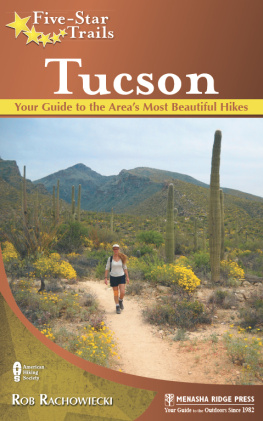
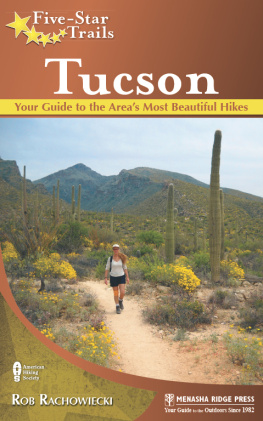
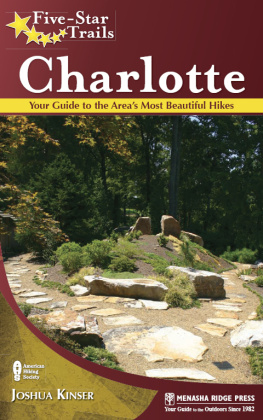
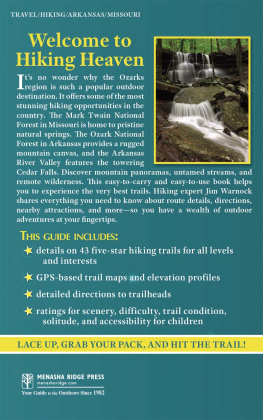
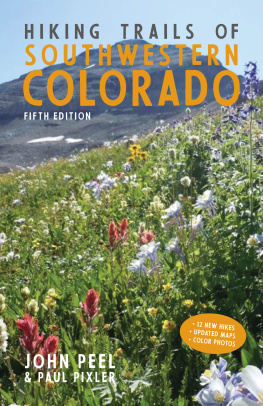
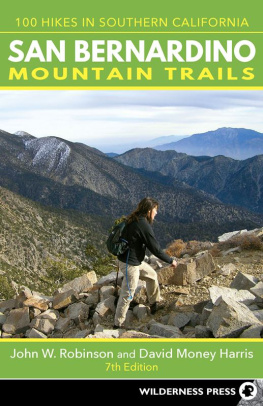
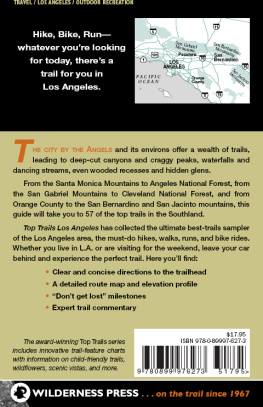

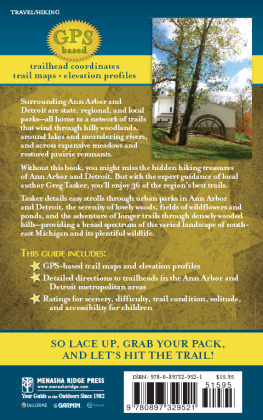
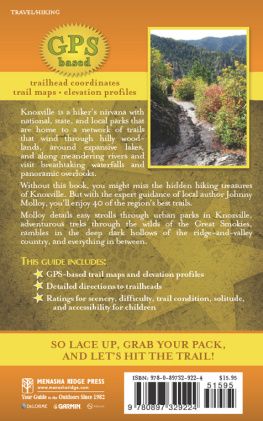
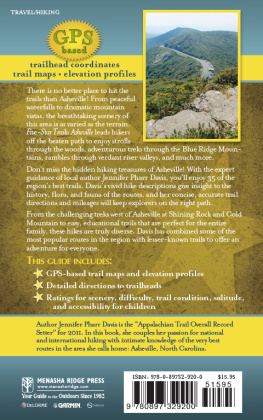
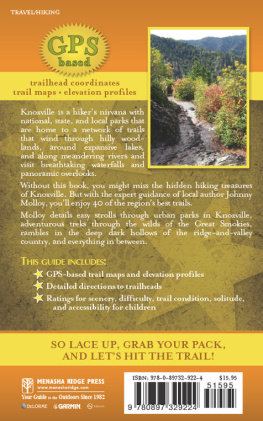
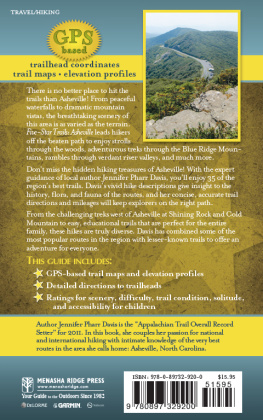





 MENASHA RIDGE PRESS
MENASHA RIDGE PRESS